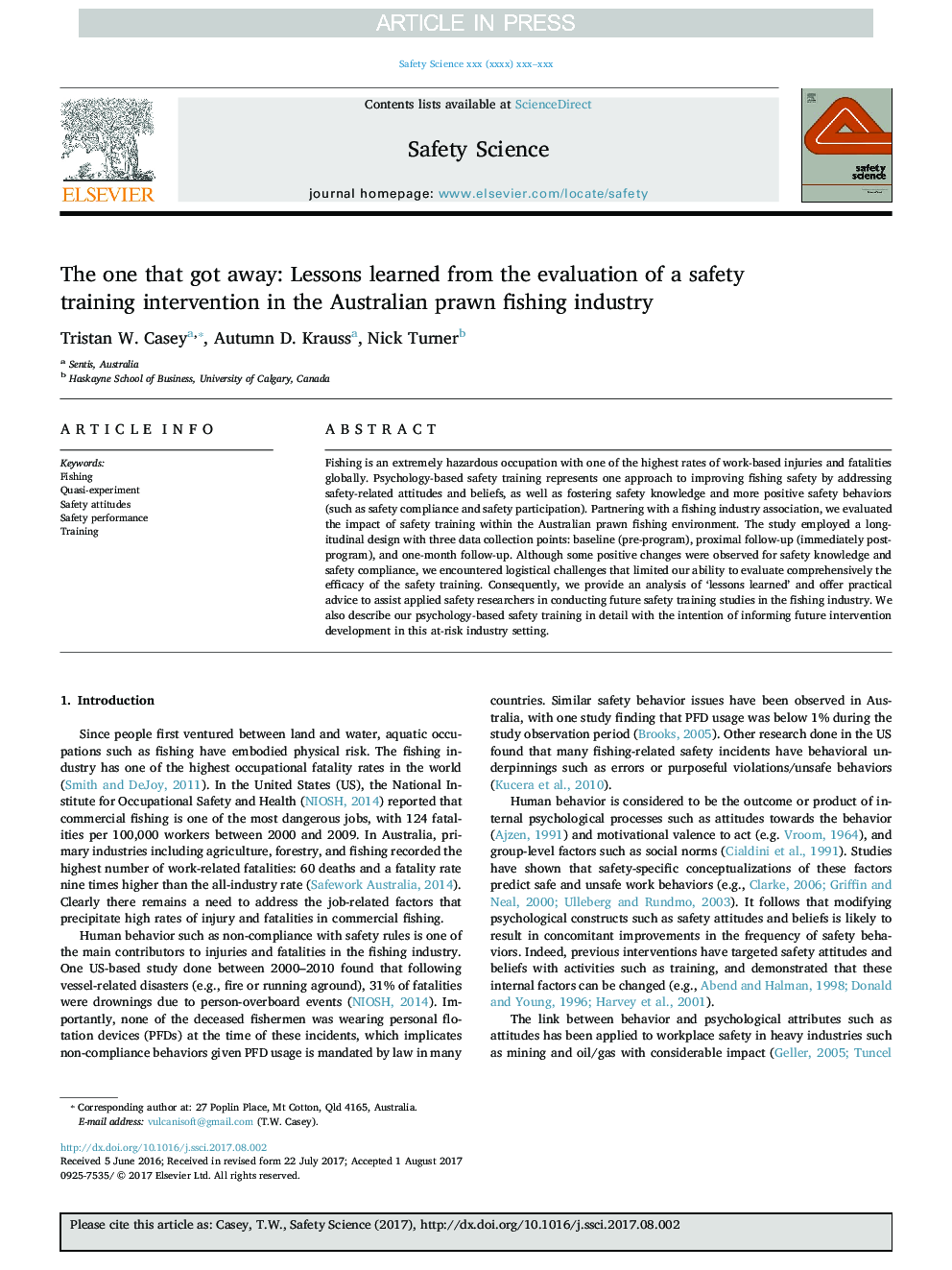| Article ID | Journal | Published Year | Pages | File Type |
|---|---|---|---|---|
| 6974791 | Safety Science | 2018 | 7 Pages |
Abstract
Fishing is an extremely hazardous occupation with one of the highest rates of work-based injuries and fatalities globally. Psychology-based safety training represents one approach to improving fishing safety by addressing safety-related attitudes and beliefs, as well as fostering safety knowledge and more positive safety behaviors (such as safety compliance and safety participation). Partnering with a fishing industry association, we evaluated the impact of safety training within the Australian prawn fishing environment. The study employed a longitudinal design with three data collection points: baseline (pre-program), proximal follow-up (immediately post-program), and one-month follow-up. Although some positive changes were observed for safety knowledge and safety compliance, we encountered logistical challenges that limited our ability to evaluate comprehensively the efficacy of the safety training. Consequently, we provide an analysis of 'lessons learned' and offer practical advice to assist applied safety researchers in conducting future safety training studies in the fishing industry. We also describe our psychology-based safety training in detail with the intention of informing future intervention development in this at-risk industry setting.
Related Topics
Physical Sciences and Engineering
Chemical Engineering
Chemical Health and Safety
Authors
Tristan W. Casey, Autumn D. Krauss, Nick Turner,
